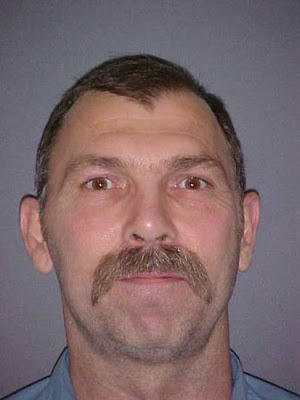
Oklahoma carries out more executions per capita than any other state in the USA (though things might slow down as the state is currently down to its last dose of pentobarbital, the anesthetic in its lethal injection cocktail).
In September 2010, Al Jazeera reporter Josh Rushing put together a video piece on the Oklahoma and U.S. death penalties. Now, he has supplemented that with his interview of Michael Selsor, who was first sent to Oklahoma’s death row in 1976, and a blow-by-blow description of Selsor’s execution on May 1, 2012 for the 1975 killing of convenience store clerk Clayton Chandler in Tulsa.
The interview with Selsor (which took place back in 2010 and was the only one he ever gave) is particularly interesting and reveals a man who was remorseful, reflective, somewhat resigned but also prideful. He was sorry for his crime, but never reached out to the victim’s daughter:
“And really if I could say look I’m sorry for what I’ve done, I’m sorry I killed your dad, what the hell would that mean to her?”
Like Merle Haggard in the country classic Mama Tried (“That leaves only me to blame ‘cos Mama tried”), Michale Selsor didn’t fault others for his crime:
“No. It would have to be a different me. I don’t wanna blame my parents for my shortcomings.”
Selsor comes across as a plain-spoken man who accepted his guilt, and his punishment. But he also observed that “…somewhere along the road there should be some kinda redemption.”
Sadly, there isn’t, not with the death penalty. There is only retribution.
Was the 57-year-old man put to death in Oklahoma’s execution chamber last week the same person who committed that terrible crime 36 years ago? From the article describing the execution we learn this:
“When school children visited the prison, Selsor played a regular part in the tour. From behind bars he shared his life lesson about the consequences of one’s actions with the children.”
This would seem to suggest that Oklahoma authorities believed Michael Selsor had become a better man. At his clemency hearing, corrections workers testifed that:
“Selsor was a model inmate who often looked out for younger men and helped them adjust to prison life.”
But whatever self-improvements Michael Selsor made were meaningless under a law that places no value on the human capacity for change.
